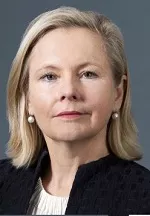This week's TGIF examines the determination of an application by a liquidator for directions as to the conduct of further investigations and for those costs and expenses to be paid from the assets of a trust.
WHAT HAPPENED?
On 16 March 2016, Australian Managed Print Services (Vic) Pty Ltd (AMPS) was wound up in insolvency and a liquidator was appointed by order of the court.
AMPS was a sole-director company, whose business (being the sale and servicing of photocopiers and printers within the printing industry) was conducted as trustee on behalf of a trust (Trust). The Trust was a standard form discretionary trust, with its objects being the director of AMPS and members of his family.
During the course of his investigations, the liquidator identified a potential claim against the director in respect of a loan account shown to be owing $662,536.28. The director contended that the amounts said to be owing were, in fact, drawings provided to him in his capacity as a beneficiary of the Trust.
At a subsequent meeting of creditors, there was disagreement as to whether funds in the liquidation should be used to fund a public examination or a distribution to creditors. The largest single creditor opposed the public examinations (presumably on the grounds that the amounts owing to it were secured by way of a personal guarantee from the director).
In the circumstances, the liquidator made an application for directions under s 479(3) of the Corporations Act 2001 (Cth):
- to conduct a public examination to investigate a potential claim against the former director of AMPS; and
- that past and future remuneration and expenses be paid to the liquidator from the proceeds of the assets of the Trust.
DECISION
The Court confirmed the application brought by the liquidator in the present case was entirely appropriate in circumstances where there existed disagreement between creditors as to whether there should be further investigation of claims or a distribution made.
It was accepted that, on the evidence before the Court, the conduct of an examination constituted "a sensible and measured approach" to determining the issues relevant to whether a claim existed. Further, the court placed weight on the fact that if successfully pursued, the claim may result in a substantial dividend being available to creditors.
With respect to payment of the liquidator's fees, the Court looked to the principles set out in Re MF Global Australia Ltd (in liq) (No 2) [2012] NSWSC 1426. In that case, Black J summarised the principles as follows:
- the court's inherent jurisdiction to allow trustee fees out of trust assets extends to a liquidator in control of the trust;
- the court can decline to exercise that jurisdiction where there are sufficient non-trust assets from which the liquidator's costs can be covered; and
- where a company has both trust and non-trust assets, the remuneration should be appropriately apportioned.
The Court held that in circumstances where:
- AMPS carried on no activities other than being a trustee of a trading trust; and
- the work carried out by the liquidator was done for the purpose of winding up the affairs of the company,
allowance should be made to the liquidator from the assets of the Trust.
In furtherance of this, the Court made orders appointing the liquidator as receiver of the assets of the Trust so as to better secure the right of indemnity over the trust assets and overcome any uncertainty as to their ability to deal with the Trust assets. The Court indicated that such an order was appropriate in the circumstances and particularly so given the appointment of the liquidator had triggered a vacancy in the office of trustee.
COMMENT
This decision reminds insolvency practitioners of the utility of an application under s 479(3) where a proposed course of action may leave one open to accusations of acting unreasonably.
Furthermore, given the increasing use of corporate trustee vehicles, liquidators should take comfort in knowing they will be permitted to have recourse to trust assets to cover costs and expenses incurred in the winding up. To remove any doubt as to an ability to deal with trust assets, it will often be appropriate to seek an order to be appointed as receiver.
The content of this article is intended to provide a general guide to the subject matter. Specialist advice should be sought about your specific circumstances.
 |
 |
| Chambers Asia Pacific Awards 2016 Winner
– Australia Client Service Award |
Employer of Choice for Gender Equality
(WGEA) |



